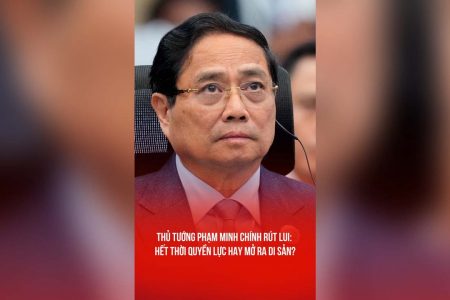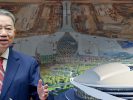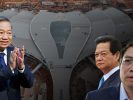
„We are modest not to say whether the most successful or too successful, but a successful term and successfully completing the tasks assigned by the Party, State and People,“ Chairwoman Nguyen Thi Kim Ngan of Vietnam’s highest legislative body National Assembly (NA) spoke at the session of the NA’s Standing Committee on March 15, 2021.
What does the NA in the 14th tenure owe the people?
Has the 14th NA fulfilled the duties of the country and the people as stated by Mrs. Nguyen Thi Kim Ngan? Or just completed the task assigned by the party? In fact, there is an injustice case of death row inmate Ho Duy Hai that the parliament needs to resolve after the cassation session, the Dong Tam case with too much obscurity, the bills such as the bills on Demonstration and Association, have not been passed by the legislators.
Professor Nguyen Dinh Cong, a Hanoi-based intellectual who has left the party and now applied for self-nomination for the 15th NA, told RFA on March 16:
“The 14th National Assembly is coming to its end, leaving two great debts to the people. The first debt belongs to the legislative function, which is the failure to pass two bills that people desperately need: the Bill on Protests and the Bill on Association. This happens because the NA is subject to the monopoly of the registry drafting agency. That is an important shortcoming, the National Assembly is not able to draft a bill but only gets used to passing the bills, has not fulfilled its functions, and then blames objectiveness.
The second debt belongs to the supervision function. Recently, there have been two cases of legal miscarriage causing great dissatisfaction to the mass, that is the Dong Tam case and the Ho Duy Hai case. The public argued that the court was in the name of the State of the Socialist Republic of Vietnam to trample on justice. In fact, the NA has reacted but too weak, not to discuss thoroughly and allow illegal, unjustly illegal acts to rage.”
The case that many people are interested in the Ho Duy Hai case that lied for more than decades. Mr. Hai in Long An was arrested and sentenced to death under the charges of “murder and robbery” in all three first-instance, appeal, and cassation hearings. However, a series of mistakes during the investigation, in the hearings, was pointed out by lawyers and observers, but the presidents did not care and kept the previous verdict.
Responding to RFA from Hanoi on March 16, Dr. Nguyen Quang A – former director of the IDS Institute for Development Studies which self-dissolved years ago, commenting:
“I think they owe the people a lot of things, not only the bills that their own Constitution has set out, for the people to exercise their rights such as protesting, forming associations but in monitoring. They also owe a lot to the judiciary, not only the Ho Duy Hai case but I think like the Dong Tam case, the NA has the power to appoint just the judges and the chief justices of the Supreme Court and then has special powers, but they can’t do it.”
In the first-instance hearing of Dong Tam’s case took place on September 14, 2020, the Hanoi People’s Court ruled against 29 people in the case of „Murdering“ and „resisting on-duty state officials” in the early morning of January 9, 2020, in Hoanh village, Dong Tam commune, Hanoi in which, two people were sentenced to death: Mr. Le Dinh Cong and Le Dinh Chuc, and one person who received a life sentence. The remaining defendants received sentences ranging from 15 months of suspended prison to 16 years in prison.
The Higher People’s Court in Hanoi in the appeal hearing on March 9, 2021, upheld the sentences of six land petitioners who had appealed the verdicts of the first instance. Among these, Mr. Le Dinh Cong and Le Dinh Chuc were sentenced to death.
Lawyers said that the Dong Tam case, although not a political case, can also be considered as a legal miscarriage, even at a rather severe level when many procedural regulations were not guaranteed during the investigation.
However, Mr. Le Van Cuong, who was the former head of the National Assembly delegation of Thanh Hoa province, when commenting on the 14th NA with RFA on March 16, said that there are also things made in a good direction:
“It must be said that the last term of the National Assembly has many innovations, from delegates only giving speeches to innovate to direct debates. This makes the delegates focus and have many sharp opinions on many issues of parliamentary concern. However, one of the limitations in the activities of the National Assembly is that the activities of the delegates are not uniform, there are very active members recognized by the voters, but there are also weak delegates who remain silent in most meetings.“
At the 37th session on September 11, 2019, of the NA’s Standing Committee on the 5-year draft report on the implementation of the 2013 Constitution (2014-2019), NA’s Vice Chairman Uong Chu Luu raised the question: Why has the bill on demonstrations not been passed?‘
According to Mr. Uong Chu Luu, in the Government’s report, there are 3 bills included in the plan but why have not yet been issued, namely the Bill on Associations, the Bill on demonstration, and the Bill on blood donation. He asked the government to build the roadmap for their submission to the parliament. However, until the last days of the 14th NA, the issues raised by Mr. Uong Chu Luu have not been fully resolved.
According to NA member, historian Duong Trung Quoc, the necessary issue of the demonstration bill was raised a long time ago. Immediately after Vietnam’s independence in 45, President Ho Chi Minh signed a decree related to the demonstration bill, which was then put under the perspective of the Bill on Freedom of Assembly and it was also mentioned in the first Constitution. Over a very long time, from the war days until 2013, when the Constitution was passed, everyone felt that the bill on demonstration was about to be passed. But then when the 14th term almost ends, the bill has still not been passed. He continued:
“That represents a hesitation in implementing a law that is so fundamental and clearly it makes it very difficult to control. People often fear that demonstrations can lead to uncontrollable chaos, but without the law of demonstration, it is clear that it makes it difficult for the people to exercise their rights and for the agency to keep order and security because there is no legal basis to properly handle the law. So it is very easy to abuse power and so it makes the situation become stressful that it is not worth it.“
The Vietnamese Constitution states that demonstration is the most fundamental and important right of the people. Based on the Constitution, many activists in Vietnam believe that the state cannot use one reason or another to delay its issuance indefinitely. On the positive side, the protest is also the driving force to contribute to perfecting a democratic and civilized state, contributing to economic and social development.
According to Dr. Nguyen Quang A, the most important issue that the NA could not do is to amend the Law on Organization of the National Assembly, on Election of the National Assembly so that people can really participate in the state management. Mr. A believes that the NA will not become an instrument of the Communist Party of Vietnam. According to him, the current NA is not of the people although the regime says it belongs to the people. Dr. Nguyen Quang A said that this is the biggest debt that the 14th NA still owes to the people and country of Vietnam.
Thoibao.de (Translated)


























